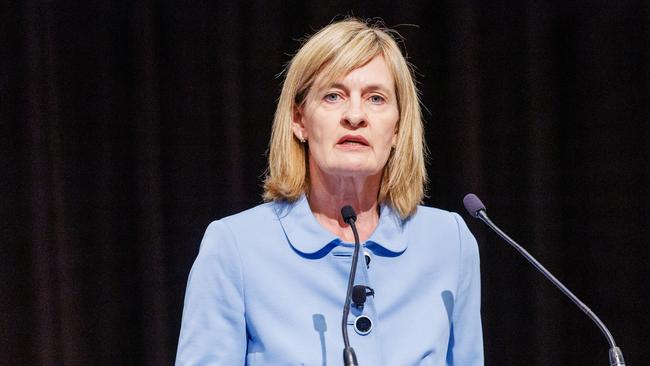ASIC shuts down payday money trap, extending ban until 2032
The extension of the ban on payday loans carrying sky-high interest will prevent outlets returning to charging more than 400 per cent for 90-day loans.

The corporate watchdog has extended a ban on payday loans carrying sky-high interest until 2032, blocking outlets such as Gold Coast firm Cigno from going back to charging more than 400 per cent for 90-day loans at a time of increasing financial hardship.
The ban on short term credit products deliberately designed to bypass national credit laws protecting consumers from excessive fees has been in place since September 2019.
The original order expired in March 2021 before the Australian Securities and Investments Commission issued a new ban in July 2022, which was due to expire on January 15.
“Extending these product intervention orders ensures continued protection in the market against these high-cost lending products,” ASIC deputy chair Sarah Court said.
“Predatory lending practices targeting vulnerable consumers is an ongoing priority of ASIC, and we will continue to intervene to address this type of conduct.”
The orders ban ventures operating since 2014 as businesses that partner with loan providers through “collateral contracts” and charge exorbitant fees, often without proper licensing.
They come as high inflation and the fastest interest rate hikes in generations have pushed financial hardship to record highs, particularly hurting younger Australians.
The ban also impacts short term credit providers such as BSF Solutions and Gold-Silver Standard Finance (GSSF) that partnered with Cigno Pty Ltd to manufacture such loans.
An ASIC consultation paper last year cited a Cigno retail client who borrowed $175 in a 48-day loan with BSF, arranged by Cigno. Within three months, the person owed more than $715 to Cigno Australia under the collateral contract, or 410 per cent of the loan.
Between May 2016 and April 2019, before the introduction of the so-called short term credit order ban, at least 270,000 retail clients had obtained credit from Cigno and GSSF.
Others arranging similar high interest money traps include short term credit provider BHF Solutions in partnership with MyFi Services, and Finance & Loans Direct associated with Teleloans Pty, the ASIC paper said.
Cigno fought ASIC’s first order in 2019 but lost. The firm used the gap period between ASIC’s orders in March 2021 and July 2022 to resume making the lucrative short term loans.
The orders, which includes a similar ongoing ban on continuing credit contracts with similar predatory lending effects, have a carveout for buy now, pay later products.
They will remain in force until revoked or when they sunset on October 1, 2032, the regulator said.
The extensions, which were approved by Financial Services Minister Stephen Jones, also follow recent lawsuits by ASIC against Cigno and its sole director, former Super Rugby player Mark Swanepoel, as well as BSF and its director Brenton James Harrison, for providing credit without a licence.
The ex-rugby star is reportedly selling his 3ha mansion in the Gold Coast as a civil case launched by ASIC against him is due to go to trial in April.




To join the conversation, please log in. Don't have an account? Register
Join the conversation, you are commenting as Logout